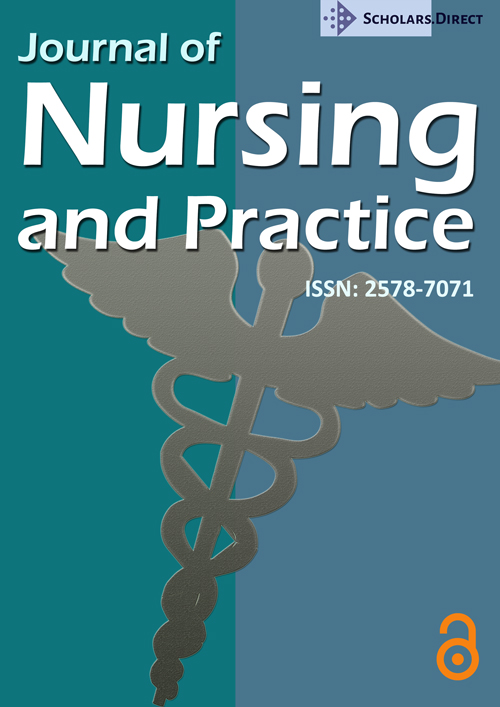A Renewed Call to Compassion
Hospitals are busy, often chaotic places with myriad requirements which take up nursing time - attending committee meetings, renewing certifications, making rounds, and providing care. Hospitals are places in which providing patient care is expected, but not necessarily caring. Nursing care has come to have two meanings. The first meaning, to provide the care needed for the patient to achieve optimal health includes the various duties a nurse performs throughout the day such as monitoring vital signs, assessing pain, assuring patient safety, administering medications, and collaborating with others on the healthcare team. The second meaning is to care for the patient in a way that acknowledges their humanity, to be concerned, and to demonstrate compassion. Nurses are often faced with the dichotomy of the expectation of doing of care as outlined in the first meaning and the being or a caregiver in the second. A central act in the being of a caregiver is to act compassionately.
To understand many concepts, it is often helpful to understand what they are not. Compassion is not sympathy. Sympathy is feeling sorry for another, but in a dispassionate way. It is, in fact, saying "That person is hurt -- How sad" without the personal experience of the hurt–of not "hurting with" that person. Sympathy does not impact either the doing or being of caregiving. Sympathy is therefore not helpful in healthcare, and is often difficult to differentiate from pity which has no place in healthcare. With pity, the person who is in pain is really dehumanized and belittled. Pity places the nurse above, and those to be pitied below and is certainly dispassionate. It judges the patient as less fortunate, and in some cases deserving of suffering ("If only they had done what they were told, this would not have happened"). The one who is pitied, in being dehumanized; is having their pain and suffering negated rather than acknowledged. Being pitied can put the person who is suffering under a spotlight. In that spotlight, pity puts their pain or human experience of suffering on display, as an object, rather than a real part of the person in question.
So, sympathy and pity are not associated with compassion. What is, then? Empathy. Empathy is the ability to experience with, not for another to address suffering (pain, fear, distress, or an unmet need). With empathy, the same neurological responses are triggered in the empathic person as the one being empathized with. You really imagine yourself in their shoes, so to speak. Empathy requires that you involve yourself in the suffering of another, and this requires great courage. You see and acknowledge their common humanity. It is not observational. It is this ability to experience with that leads to compassion.
The word "compassion" is from Latin and means "to suffer with". I define compassion as empathy in action. Compassion compels action, and it is an act of unconditional love. It reaches out. More than just feel with (empathy), it is what causes the nurse to set aside their own agenda of providing care and be with someone who is suffering. In compassion, the nurse will stop, make eye contact, and acknowledge the humanity of the patient in their care - not as someone with a disease process, but as someone who is in disease. Compassion compels the nurse to elicit the patient's story and to deeply listen to it, to bear witness to their human needs. Arthur Frank, in his artfully written book, At the Will of the Body: Reflections on Illness, identifies the life affirming nature of this central act of compassion for both the caregiver and the one experiencing care:
[To listen]...makes the person's life meaningful. And as that person's life story becomes part of her own, the caregiver's life is made meaningful as well...Listening to another, we hear ourselves (p. 48) [1].
It is important to nurses to realize the vulnerability of the persons in our care. When we act compassionately, the person is supported and enters into a trusting relationship with the nurse. When we are dispassionate, it is sensed by the patient and a trusting relationship isn't possible. Again, Arthur Frank illuminates the effect of dispassionate care:
A nurse interviewed...me to assess "psychosocial needs" in the middle of this medical "bus station". Was I experiencing difficulty at work because of my illness? Reasonable question...The response to most of the questions was to lie. Why? To figure out my best deal, I had to assess the kind of support I thought I could get in that setting from that nurse. Nothing she did convinced me that what she could offer was equal to what I would risk by telling her the truth (pp. 68-69).
Let us all renew our efforts to close the gap between the dichotomy of providing care and caring. Let us all affirm that compassion is the central act of caring. Let us all apprehend the vulnerability of those within our care and the need to act compassionately.
References
Corresponding Author
Lisa A Davis, PhD, RN, Professor, Holistic Stress Management Instructor, Department of Nursing, College of Nursing and Health Sciences, West Texas A&M University, USA.
Copyright
© 2019 Davis LA. This is an open-access article distributed under the terms of the Creative Commons Attribution License, which permits unrestricted use, distribution, and reproduction in any medium, provided the original author and source are credited.




